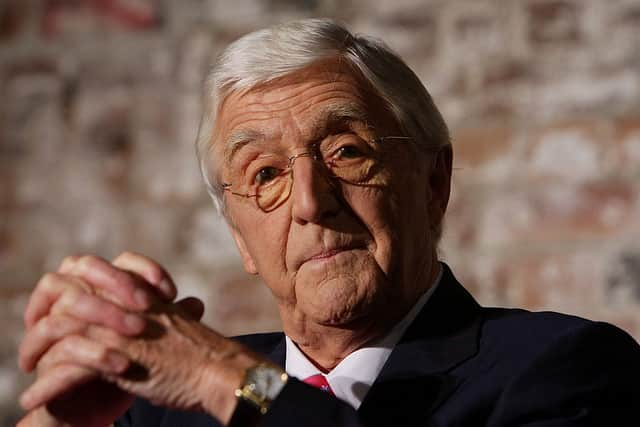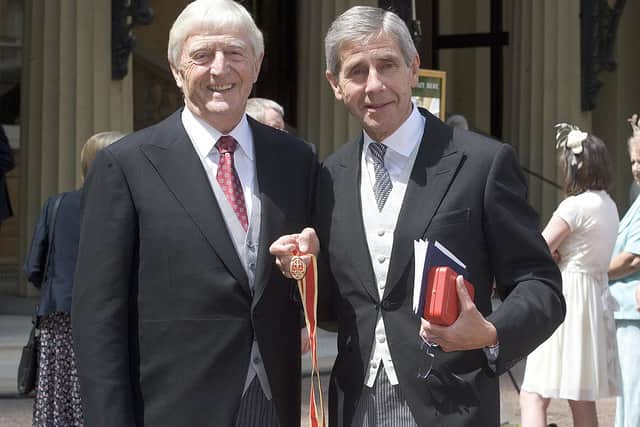Michael Parkinson: BBC broadcaster suffered ‘imposter syndrome’ due to working class roots son reveals
and live on Freeview channel 276
The late Sir Michael Parkinson’s son has revealed that the renowned broadcaster struggled with imposter syndrome and grappled with self-doubt during his illustrious career. Speaking on BBC Radio 4’s Last Word, Mike Parkinson disclosed that his famous father, despite his confident on-screen persona, harboured a significant lack of self-assurance.
Parkinson, who died at the age of 88 earlier this month, was known for his iconic interviews on his chat show, where he engaged with legends like Muhammad Ali and Dame Helen Mirren.
Advertisement
Hide AdAdvertisement
Hide AdDespite his success, he retained traces of his working-class upbringing near Barnsley, and according to his son, he remained conscious of societal class distinctions. Mike said individuals in authoritative positions at the BBC questioned his talents and doubted his qualifications as an interviewer.
He said: "He was always acutely aware that he was with people that he felt were brighter than him, were more educated than him." This internal struggle led to a deep-seated insecurity, even though he projected confidence on television.
He told the BBC programme: "He went to the BBC, and he felt very much... not inferior, (but) he was very insecure. He was a man who was constantly questioning himself and didn’t have as much self-confidence as he appeared to have on television."
He added that his confidence grew in the 1990s when his chat show returned to the BBC "because he’d earned his stripes". However, Michael Parkinson’s self-assurance saw further growth in the 1990s when his chat show returned to the BBC, a testament to the hard-earned recognition of his abilities.


Advertisement
Hide AdAdvertisement
Hide AdIn addition to his broadcasting career, Sir Michael Parkinson was a founding member of the Anti Nazi League and held strong social and political convictions. He had an innate distrust of the establishment and believed in standing up against perceived injustices.
While some critics dubbed him "sexist Parky" for interviews like the one with Dame Helen Mirren, his son stressed that his father was, in fact, against sexism.
Despite his anti-establishment stance, Sir Michael accepted a knighthood from Queen Elizabeth II in 2008, primarily out of pride for his parents and as a symbol of his remarkable journey from a coal mining village to a grammar school and then to a local newspaper before being knighted by the monarch.
Mike said: "And also, you’ve got to understand that this says a lad who was born in a pit village, went to a grammar school... worked for the local newspaper and all of a sudden, 67 years later, he’s kneeling in front of the Queen, being knighted."


Advertisement
Hide AdAdvertisement
Hide AdTributes from global figures poured in following Sir Michael’s passing, but Mike acknowledged that the family’s mourning process had been somewhat deferred due to the public’s overwhelming outpouring of grief.
Becoming emotional, he said, "The difficulty with having a public figure as a father is that you feel you can’t grieve until everyone else has... you feel that everyone else must express what they feel about him because he meant so much to them."
Comment Guidelines
National World encourages reader discussion on our stories. User feedback, insights and back-and-forth exchanges add a rich layer of context to reporting. Please review our Community Guidelines before commenting.
